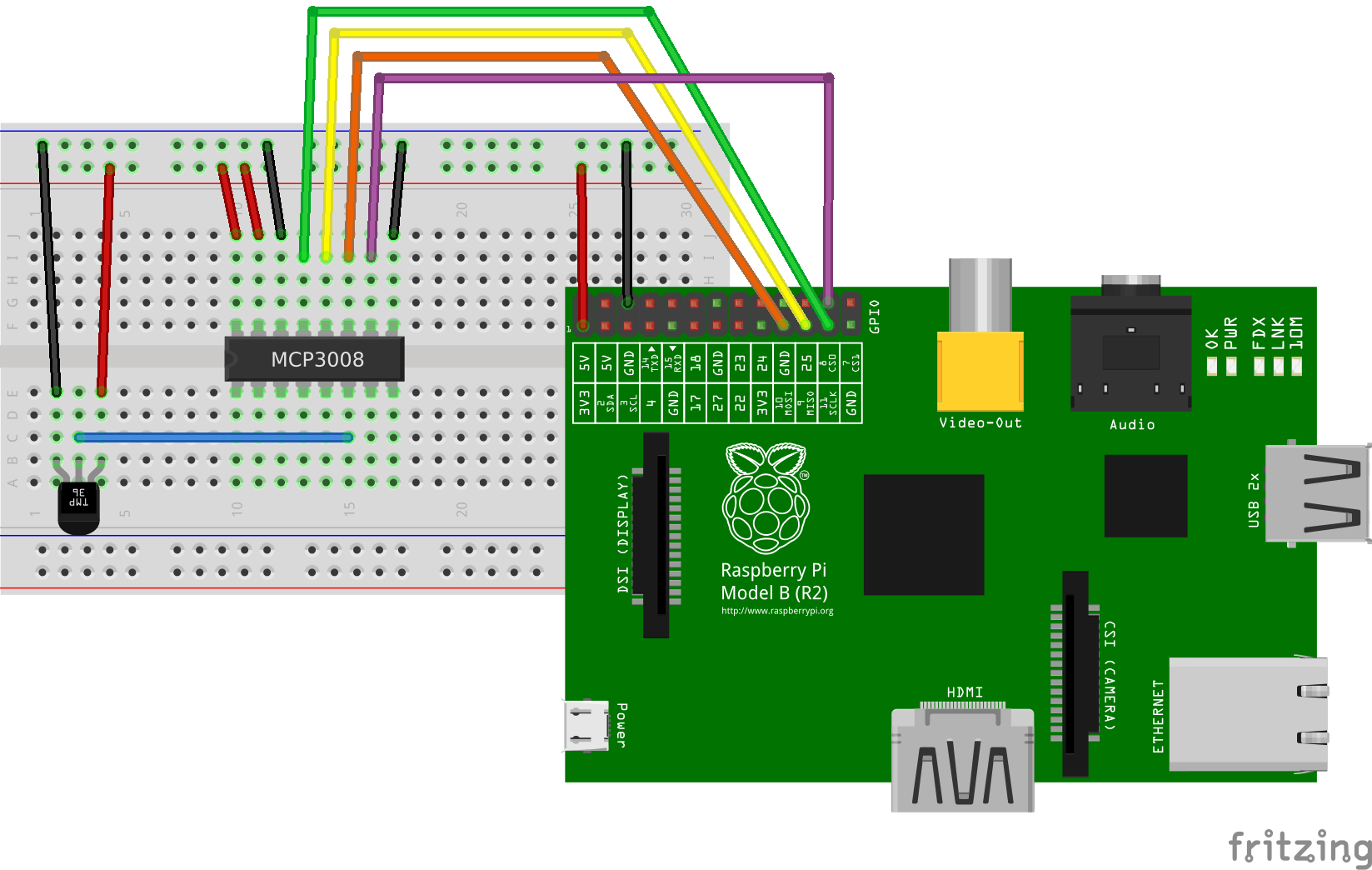https://github.com/fivdi/mcp-spi-adc
MCP3002/4/8, MCP3202/4/8 and MCP3304 SPI analog to digital conversion with Node.js
https://github.com/fivdi/mcp-spi-adc
adc beaglebone beaglebone-black iot javascript mcp3002 mcp3004 mcp3008 mcp3201 mcp3202 mcp3204 mcp3208 mcp3304 nodejs raspberry-pi spi
Last synced: 15 days ago
JSON representation
MCP3002/4/8, MCP3202/4/8 and MCP3304 SPI analog to digital conversion with Node.js
- Host: GitHub
- URL: https://github.com/fivdi/mcp-spi-adc
- Owner: fivdi
- License: mit
- Created: 2016-05-28T14:39:29.000Z (over 9 years ago)
- Default Branch: master
- Last Pushed: 2021-10-17T09:14:47.000Z (almost 4 years ago)
- Last Synced: 2024-10-18T20:47:23.981Z (12 months ago)
- Topics: adc, beaglebone, beaglebone-black, iot, javascript, mcp3002, mcp3004, mcp3008, mcp3201, mcp3202, mcp3204, mcp3208, mcp3304, nodejs, raspberry-pi, spi
- Language: JavaScript
- Homepage:
- Size: 276 KB
- Stars: 62
- Watchers: 6
- Forks: 10
- Open Issues: 4
-
Metadata Files:
- Readme: README.md
- Changelog: History.md
- License: LICENSE
Awesome Lists containing this project
README
[](https://app.travis-ci.com/github/fivdi/mcp-spi-adc)
[](https://www.npmjs.com/package/mcp-spi-adc)
[](https://www.npmjs.com/package/mcp-spi-adc)
# mcp-spi-adc
MCP3002/4/8, MCP3201/2/4/8 and MCP3304 SPI analog to digital conversion with
**Node.js** on Linux boards like the Raspberry Pi or BeagleBone.
mcp-spi-adc supports Node.js versions 10, 12, 14, 15 and 16.
## Contents
* [Installation](#installation)
* [Usage](#usage)
* [Supported Devices](#supported-devices)
* [API Documentation](#api-documentation)
## Installation
```
npm install mcp-spi-adc
```
In order to use mcp-spi-adc SPI must be enabled. How SPI is enabled varies
from board to board. For example, on the Raspberry Pi the raspi-config tool
can be used enable SPI. On the BeagleBone Black the config-pin utility can be
used.
## Usage
Determine the temperature using a TMP36 analog temperature sensor wired to
channel 5 on an MCP3008 SPI A/D converter.

```js
const mcpadc = require('mcp-spi-adc');
const tempSensor = mcpadc.open(5, {speedHz: 20000}, err => {
if (err) throw err;
setInterval(_ => {
tempSensor.read((err, reading) => {
if (err) throw err;
console.log((reading.value * 3.3 - 0.5) * 100);
});
}, 1000);
});
```
Note how the optional configuration option speedHz is used to configure the
SPI clock frequency in Hertz for reading the value from the TMP36 temperature
sensor. The default SPI clock frequency for the MCP3008 is 1350000Hz but
lowering it to 20000Hz gives a more acurate temperature reading. In general,
it's not necessary to lower the clock speed to read a value.
The default clock speed of 1350000Hz for the MCP3008 is derived from the
[MCP3008 datasheet](https://cdn-shop.adafruit.com/datasheets/MCP3008.pdf).
The maximum sampling rate at VDD = 2.7V is 75 ksps and each sample requires
an 18-bit transfer. 75000 x 18 = 1350000. 1350000Hz is a conservative frequency
in the above circuit as VDD is 3.3V.
## Supported Devices
Device | Channels | Channel Numbers | Default Clock Frequency | Resolution | Raw Value Range
:---: | ---: | ---: | ---: | ---: | ---:
MCP3002 | 2 | 0-1 | 1200000Hz | 10-bit | 0-1023
MCP3004 | 4 | 0-3 | 1350000Hz | 10-bit | 0-1023
MCP3008 | 8 | 0-7 | 1350000Hz | 10-bit | 0-1023
MCP3201 | 1 | 0 | 800000Hz | 12-bit | 0-4095
MCP3202 | 2 | 0-1 | 900000Hz | 12-bit | 0-4095
MCP3204 | 4 | 0-3 | 1000000Hz | 12-bit | 0-4095
MCP3208 | 8 | 0-7 | 1000000Hz | 12-bit | 0-4095
MCP3304 | 8 | 0-7 | 1050000Hz | 13-bit | 0-4095
## API Documentation
All methods are asynchronous and take a completion callback as their last
argument. The arguments passed to the completion callback depend on the
method, but the first argument is always reserved for an exception. If the
operation was completed successfully, then the first argument will be null
or undefined.
### Functions
- [openMcp3002(channel[, options], cb)](#openmcp3002channel-options-cb)
- [openMcp3004(channel[, options], cb)](#openmcp3004channel-options-cb)
- [openMcp3008(channel[, options], cb)](#openmcp3008channel-options-cb)
- [openMcp3201(channel[, options], cb)](#openmcp3201channel-options-cb)
- [openMcp3202(channel[, options], cb)](#openmcp3202channel-options-cb)
- [openMcp3204(channel[, options], cb)](#openmcp3204channel-options-cb)
- [openMcp3208(channel[, options], cb)](#openmcp3208channel-options-cb)
- [openMcp3304(channel[, options], cb)](#openmcp3304channel-options-cb)
- [open(channel[, options], cb) - alias for openMcp3008(channel[, options], cb)](#openchannel-options-cb---alias-for-openmcp3008channel-options-cb)
### Class AdcChannel
- [adcChannel.read(cb)](#adcchannelreadcb)
- [adcChannel.close(cb)](#adcchannelclosecb)
### openMcp3002(channel[, options], cb)
### openMcp3004(channel[, options], cb)
### openMcp3008(channel[, options], cb)
### openMcp3201(channel[, options], cb)
### openMcp3202(channel[, options], cb)
### openMcp3204(channel[, options], cb)
### openMcp3208(channel[, options], cb)
### openMcp3304(channel[, options], cb)
### open(channel[, options], cb) - alias for openMcp3008(channel[, options], cb)
- channel - the number of the channel to open, see channel numbers in
[supported devices](#supported-devices)
- options - an optional object specifying channel configuration options
- cb - completion callback
Asynchronous open. Returns a new AdcChannel object. The completion callback
gets one argument (err). The AdcChannel object returned should not be used
before the completion callback is called.
The following channel configuration options are supported:
- busNumber - the SPI bus number, 0 for `/dev/spidev0.n`,
1 for `/dev/spidev1.n`, ..., default 0
- deviceNumber - the SPI device number, 0 for `/dev/spidevn.0`,
1 for `/dev/spidevn.1`, ..., default 0
- speedHz - a number representing the SPI clock frequency for reading from the
channel in Hertz, see default clock frequency in
[supported devices](#supported-devices)
### adcChannel.read(cb)
- cb - completion callback
Asynchronous read. The completion callback gets two arguments (err,
reading). The reading argument is an object with the following properties:
- value - the value read from the channel scaled to a value between 0 and 1
- rawValue - the value read from the channel, see raw value range in
[supported devices](#supported-devices)
Returns this.
### adcChannel.close(cb)
- cb - completion callback
Asynchronous close. Frees system resources used by this instance. The
completion callback gets one argument (err). Returns null.